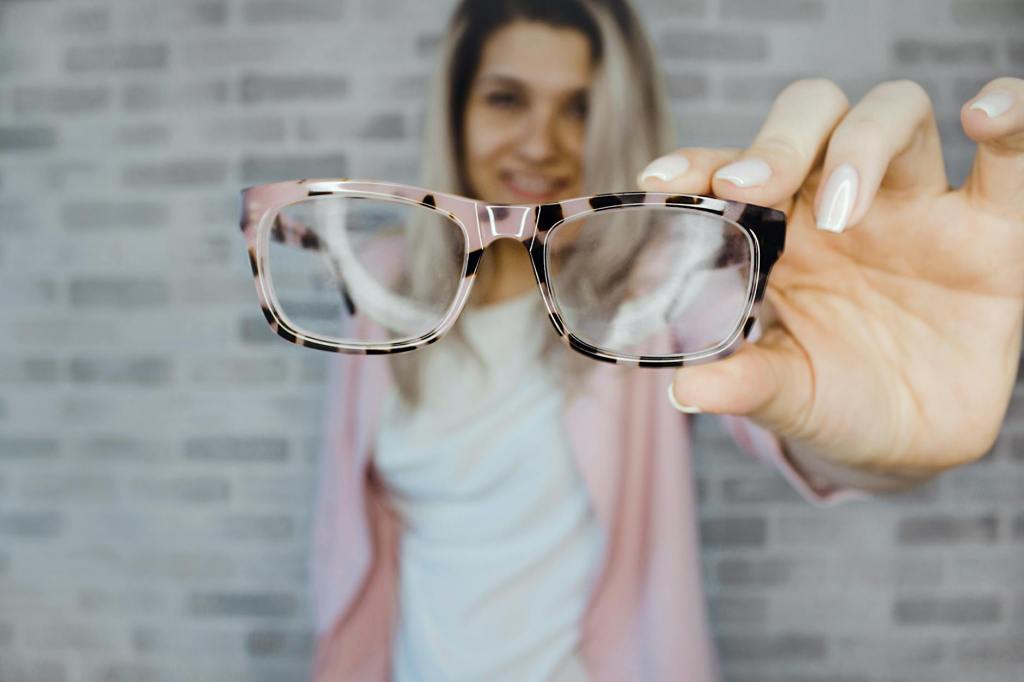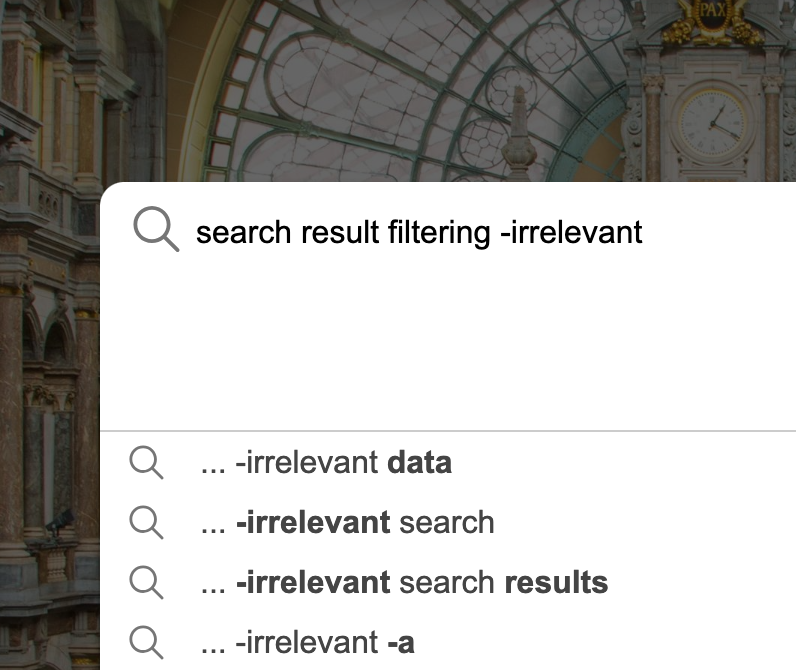If you are a frequent computer user, chances are you have heard of special pairs of glasses that “filter out harmful blue light from digital devices like computers, tablets, and smartphones” (Iuliano). These special pairs of glasses, often referred to as “blue light lenses” or “blue light glasses”, are often described as being a great way to maintain the health of your eyes. Iuliano states that blue light glasses are “excellent for those who spend a lot of time in front of screens, promoting better overall health and comfort for the eyes”. However, they are just as often criticized for not being as useful as they claim to be, which is partially due to the lack of research on blue light lenses.
What is Blue Light?
First, before diving into the reasons why some believe that blue light glasses are not very effective while others disagree, it is important to explain what blue light is. Blue light is, as the name implies, “part of the visible light spectrum and is emitted by the sun and digital devices like laptops, smartphones, and LED lights. It’s … high-energy, short wavelength” (Iuliano) The visible light spectrum is the entire range of colors that we, as humans, are able to perceive, from the reddest reds to the purpliest purples. When all of these colors are combined together, they create white light. Generally, “everywhere you look, there is blue light” (TEC Authors).
In proper amounts, blue light “provides many positive effects, including heightened attention, improved reaction times, and an uplifted mood” (Iuliano). It is when someone is exposed to too much blue light, however, that is seen as an issue. In scientific studies using animals, “prolonged exposure to natural blue light has been shown to damage the retina” (Kelly). However, there has not been much research as to the impact of blue light on human eyes. This lack of research data is likely the cause for the varying opinions on blue light and blue light lenses.
Blue Light Lenses and Eye Damage
There are claims that increased or frequent exposure to blue light can result in eye damage, both temporary and permanent. Thus, some claim that “wearing blue light glasses can reduce the detrimental effects of constant exposure to blue light, which will reduce your risk of getting eye diseases” or the risk of damaging your eyes (TEC Authors). In some ways, they claim that blue light glasses can help maintain the health of your eyes and fight harmful blue light exposure.
However, others state that these claims are not completely founded on meaningful evidence. Many of the experiments regarding blue light exposure did not “mimic the natural conditions of blue light exposure to live human eyes” and also did not “use blue light from computer screens” (Porter). As a result, some assert that “no meaningful link between blue light” and “damage to the human retinas… or age-related macular degeneration” has been shown by the evidence of these studies (Porter).
Blue Light Lenses and Eye Fatigue
Some do agree that blue light will not cause lasting eye damage, but instead simply causes eye irritation or fatigue. Specifically, some cite that increased exposure to blue light “can cause fatigue in your eyes, loss of focus” (TEC Authors). To combat this, blue light lenses are recommended. These special glasses “can be one way to ease digital eye strain … This specialized eyewear filters blue light and increases contrast, allowing you to focus more easily and preventing eye strain” (TEC Authors). Thus, you will be able to utilize a computer or other blue-light emitting device for longer without suffering irritation or ill effects.
However, there is another possible source of eye fatigue due to looking at screens which has nothing to do with blue light itself. The reason we suffer from “digital eye strain is that we blink less when we stare at our devices” due to the closeness of the screen to our face (Porter). If we blink less when looking at a screen, our eyes will naturally tire out more and possibly become drier. This then causes eye fatigue and irritation, especially after prolonged use of electronics. As a result, we begin to lose focus more often, since our eyes may become itchy or too tired to continue staring at our screens. Instead of blue light glasses, the recommendation is made to practice the 20-20-20 method or to use eye lubrication drops to combat irritation and dry eye (Porter). The 20-20-20 method is as follows: “Every 20 minutes look away from your screen and look at an object 20 feet away for at least 20 seconds. This gives your eyes a chance to reset and replenish themselves” (Porter).
Blue Light Lenses and Disrupted Sleep
Finally, others state that “while there are not enough studies to definitively prove the effectiveness of blue light lenses in reducing digital eye strain, preventing dry eyes, or protecting against macular degeneration, they can still help regulate sleep-wake cycles and circadian rhythms” (Iuliano). Essentially, increased exposure to blue light can disrupt our body’s “natural clock” that causes us to naturally get tired at night and wake up in the morning. Specifically, “excessive exposure to blue light, especially in the evening” is believed to disrupt your body’s innate sleep cycle, making it harder for you to fall asleep at night, which, in turn, can make it harder to wake up in the morning (Iuliano). This is because blue light is believed to “disrupt melatonin production, the hormone responsible for regulating our sleep-wake cycle. This disruption can lead to difficulties falling asleep and achieving restful sleep” (Iuliano). As a result, if you block out the amount of blue light that reaches your eyes with blue light glasses, you can preserve your normal sleep schedule.
However, there is still disagreement on whether or not blue light truly is the cause of disrupted sleep, or whether it is the general use of our devices instead. Some state that “simply decreas[ing] evening screen time and set[ting] devices to night mode” can help preserve your sleep schedule much more than blue light glasses can (Porter). Regardless, insufficient sleep can lead to mental health issues. Specifically, “research has consistently indicated a connection between disrupted sleep and susceptibility to depression and anxiety” (Iuliano). If you do not get enough proper sleep, then you may begin to develop depression or anxiety as a result. Thus, it is important to ensure that you are getting a restful and sufficient amount of sleep nightly.
The Author’s Opinion on Blue Light Lenses
Each side of this debate has compelling reason behind it. Thus, it is hard to say for certain whether or not blue light glasses are truly useful or not. However, I personally believe that it would not cause any harm to invest in a pair if they are of interest to you. To me, it seems like it wouldn’t cause harm to use blue light glasses. The best-case scenario is that they are found to be effective through scientific study. While the worst-case scenario is that they are useless, I would stick with the age old saying of “better safe than sorry”. Some pairs of prescription glasses may also have an option to include blue light filtering in the lenses, so if you already wear glasses, it might not be a bad idea to consider.
Regardless of whether you decide to purchase or whether you use blue light glasses, I would definitely recommend employing some of the other suggestions listed above. Generally, “a good rule of thumb is to limit device use in the evening and take frequent breaks during the day” (Iuliano). It is also not a bad idea to use dimmable lighting or night light settings to “replicate the soft hues of natural light and create a relaxing atmosphere that can help you fall asleep more easily” (Iuliano). In addition, practice using the 20-20-20 rule to help prevent eye fatigue and dry eye.
Resources & Further Reading
Iuliano, Anthony. “What Are the Benefits of Blue Light Glasses?” River Heights Eye Care, River Heights Eye Care, 18 Sept. 2023, riverheightseyecare.com/what-are-the-benefits-of-blue-light-glasses/.
Kelly, Gretchen. “Are Blue Light Glasses Effective?” Mayo Clinic Health System, Mayo Clinic Health System, 5 July 2022, www.mayoclinichealthsystem.org/hometown-health/speaking-of-health/are-blue-light-blocking-glasses-a-must-have.
Porter, Daniel. “Digital Devices and Your Eyes.” American Academy of Ophthalmology, American Academy of Ophthalmology, 15 Nov. 2019, www.aao.org/eye-health/tips-prevention/digital-devices-your-eyes.
TEC Authors. “5 Reasons Why You Should Be Wearing Blue Light Glasses.” Texas Eye and Cataract, Texas Eye and Cataract, 14 June 2022, www.teceyecare.com/5-reasons-why-you-should-be-wearing-blue-light-glasses.





Leave a comment